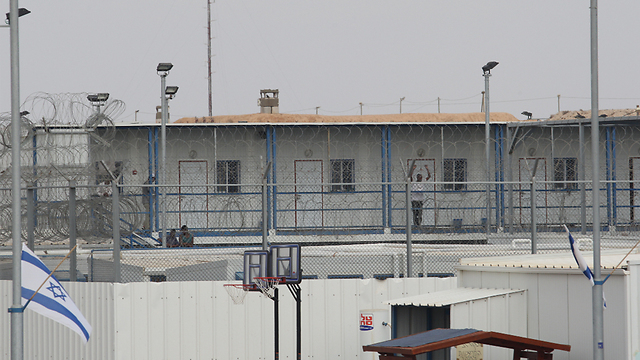Be’er Sheva District Court rejects a petition to freeze the controversial policy; Human Rights groups appealed against the new policy but to no avail; there are about 47,000 asylum seekers in Israel, mostly Sudanese and Eritrean nationals
The Be’er Sheva District Court rejected Sunday a petition for an interim order to freeze the Administration of Population and Immigration’s new policy, which allows the indefinite detention without trial of asylum seekers who refuse to leave Israel via the procedure known as “voluntary departure”.
The decision means that from now on, the Administration of Population and Immigration can carry out its policy that was frozen after the court stopped it with a temporarily order. Another hearing on the petition filed by human rights organizations on behalf of two asylum seekers against the new policy was scheduled for September.
According to the policy, announced by former interior minister Gilad Erdan last April, asylum seekers who have not applied for asylum or whose application was rejected and who have refused to leave Israel within 30 days as part of the procedure, will be detained at Saharonim Prison after a hearing, but without a trial, for an unlimited period and this is as per Israel’s Entry Law.

Human rights groups, including the Refugee Rights Program at the University of Tel Aviv’s law department and the Center for Refugees and Migrants appealed earlier this month once again against the new policy after an earlier petition was rejected by the same court. In the earlier decision, the Court accepted the state’s argument that the petition was premature, as the decision as to whom among the petitioners would be transferred to detention had yet to be decided.
In her decision Monday, Judge Rachel Barkai wrote that “the concern of petitioners to leave Israel after many years, to another country that is unknown to them, is a legitimate concern, but in the absence of any alleged basis of real danger to their liberty, there is nothing to hinder the action taken today by the State.”
“Dubious secret cloak”
Anat Ben Dor and Elad Kahana of the Refugee Rights Clinic at University of Tel Aviv’s law department, who filed the petition, said that “it is very regrettable to see proven that the court is satisfied with the State’s weak answers regarding the fate of those who leave to a third country under the dubious secret cloak of the agreement, whereas the concrete evidence provided which indicate that those who leave are arrested and required to leave the country was not satisfactorily taken into consideration.”
The lawyers added that “the responsibility to pass on information and to monitor the situation of all those leaving is the state’s. We hope that after the deliberation on the petition itself the court will overturn the unlawful arrangement, which allows the imprisonment of people without restriction, only because they are concerned, and rightly so, about the dangers awaiting them in a country that has not committed at all to ensure their security.”
In recent years, the judges of High Court of Justice rejected two amendments to the Prevention of Infiltration Law enacted by the Knesset, which would allow for asylum seekers to be detained without trial for a period of one year up to an unlimited period of time. The first amendment was rejected after judges ruled that detention without trial and for an indefinite period of time disproportionately harms the basic right of “human dignity and liberty.” In the next two months the judges are expected to decide the fate of the law’s third amendment which allows detention without trial for a limited period.
According to the Administration of Population and Immigration, there are about 47,000 asylum seekers in Israel, mostly Sudanese and Eritrean nationals, which Israel is avoiding expelling because of its obligations to international law and the 1951 Refugee Convention. Owing to this, Israel has pursued a policy of protection and temporary restraining orders against these asylum seekers.
Human rights organizations and the UN Refugee Agency (UNHCR) criticized the procedure known as “voluntary departure” even before the new policy was implemented, arguing that it is not a voluntary departure when the only alternative is to be detained in the Holot Center . Currently, those who refuse will be to be transferred to Saharonim Prison.
As reported by Ynetnews
